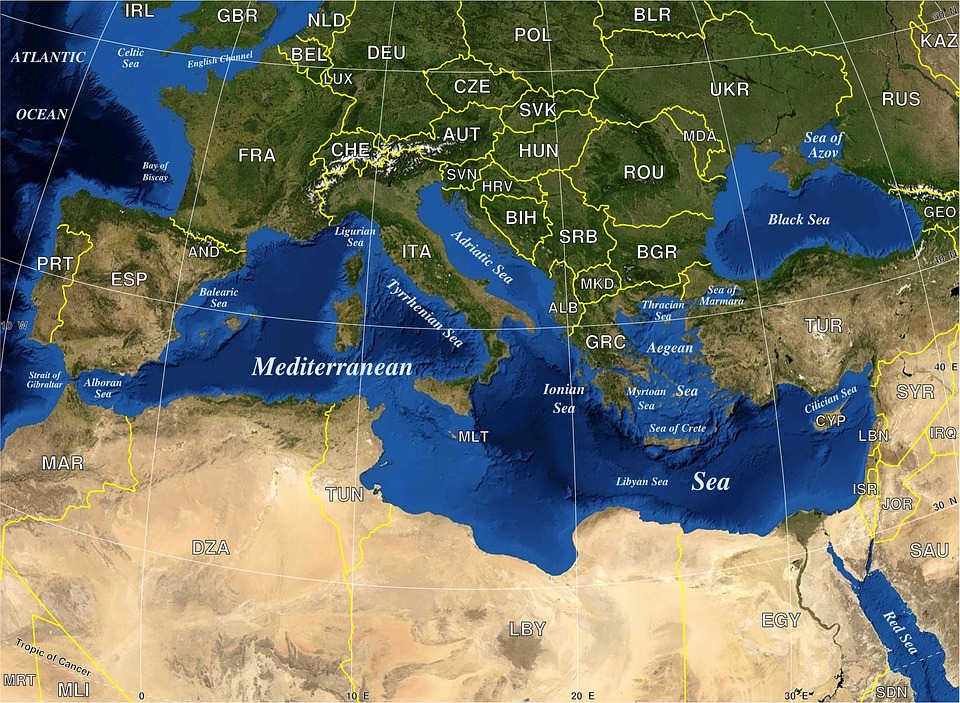The Impact of Technological Advancements on the Political Landscape
Introduction
Technology has greatly influenced various aspects of our lives, including the political landscape. From social media to big data analytics, advancements in technology have reshaped the way political campaigns are run, how people engage with political issues, and even the nature of governance itself. In this article, we will explore the impact of technological advancements on the political landscape and how it is shaping the future of politics.
Social Media and Political Campaigns
One of the most significant impacts of technology on the political landscape is the rise of social media. Platforms like Twitter, Facebook, and Instagram have fundamentally changed the way politicians interact with their constituents, run campaigns, and communicate their messages. Social media has made it easier for politicians to reach a wider audience, engage with voters in real-time, and mobilize support for their political agendas.
Moreover, social media platforms have also given ordinary citizens a voice in the political process. Individuals can use social media to express their opinions, organize grassroots movements, and hold politicians accountable for their actions. Social media has empowered citizens to participate in the political process in ways that were not possible before the advent of technology.
Big Data and Political Analysis
Another important impact of technological advancements on the political landscape is the use of big data analytics. Political campaigns now rely on data-driven insights to understand voter behavior, identify key issues, and target specific demographic groups. Big data analytics have revolutionized the way political campaigns are run, enabling politicians to tailor their messages to resonate with different segments of the population.
By analyzing vast amounts of data, political strategists can predict voter preferences, anticipate trends, and optimize their campaign strategies for maximum impact. Big data analytics have also enabled politicians to better understand the concerns and priorities of their constituents, leading to more informed policy decisions.
Election Security and Digital Threats
With the increasing reliance on technology in the political process, ensuring election security has become a top priority for governments around the world. Cybersecurity threats, such as hacking, disinformation campaigns, and election interference, pose a serious risk to the integrity of democratic elections. Governments and political parties are investing heavily in cybersecurity measures to protect against digital threats and safeguard the electoral process.
Additionally, the rise of deepfake technology and online misinformation has further complicated the issue of election security. Deepfake videos, which use artificial intelligence to create realistic but false content, can be used to spread misinformation and manipulate public opinion. As such, governments are working to develop policies and technologies to combat the spread of deepfake content and safeguard the integrity of elections.
Transparency and Accountability
Technology has also played a role in promoting transparency and accountability in government. Websites like OpenSecrets.org and VoteSmart.org provide citizens with access to information about campaign finance, lobbying activities, and the voting records of elected officials. These platforms enable citizens to hold politicians accountable for their actions, track the flow of money in politics, and make informed decisions at the ballot box.
Moreover, advancements in blockchain technology have the potential to revolutionize transparency in the political process. Blockchain, a decentralized digital ledger, can be used to securely record and track transactions, contracts, and other forms of data. By implementing blockchain technology in the electoral process, governments can ensure the transparency and integrity of elections, promote voter trust, and prevent fraud.
The Future of Politics in the Digital Age
As technology continues to advance, its impact on the political landscape will only grow stronger. Artificial intelligence, machine learning, and automation are poised to revolutionize the way governments operate, deliver services, and engage with citizens. The use of drones, satellites, and sensors for data collection and monitoring will also shape the future of governance and policy-making.
However, as technology becomes more integrated into the political process, challenges and ethical concerns will inevitably arise. Issues such as data privacy, cybersecurity, and the digital divide must be addressed to ensure that the benefits of technological advancements are shared equitably and that the democratic process remains fair and inclusive.
In conclusion, the impact of technological advancements on the political landscape is profound and far-reaching. From social media to big data analytics, technology has transformed the way politicians campaign, citizens engage with political issues, and governments operate. As we navigate the complexities of the digital age, it is crucial that we harness the power of technology for the greater good and ensure that our political institutions are equipped to meet the challenges of the 21st century.
